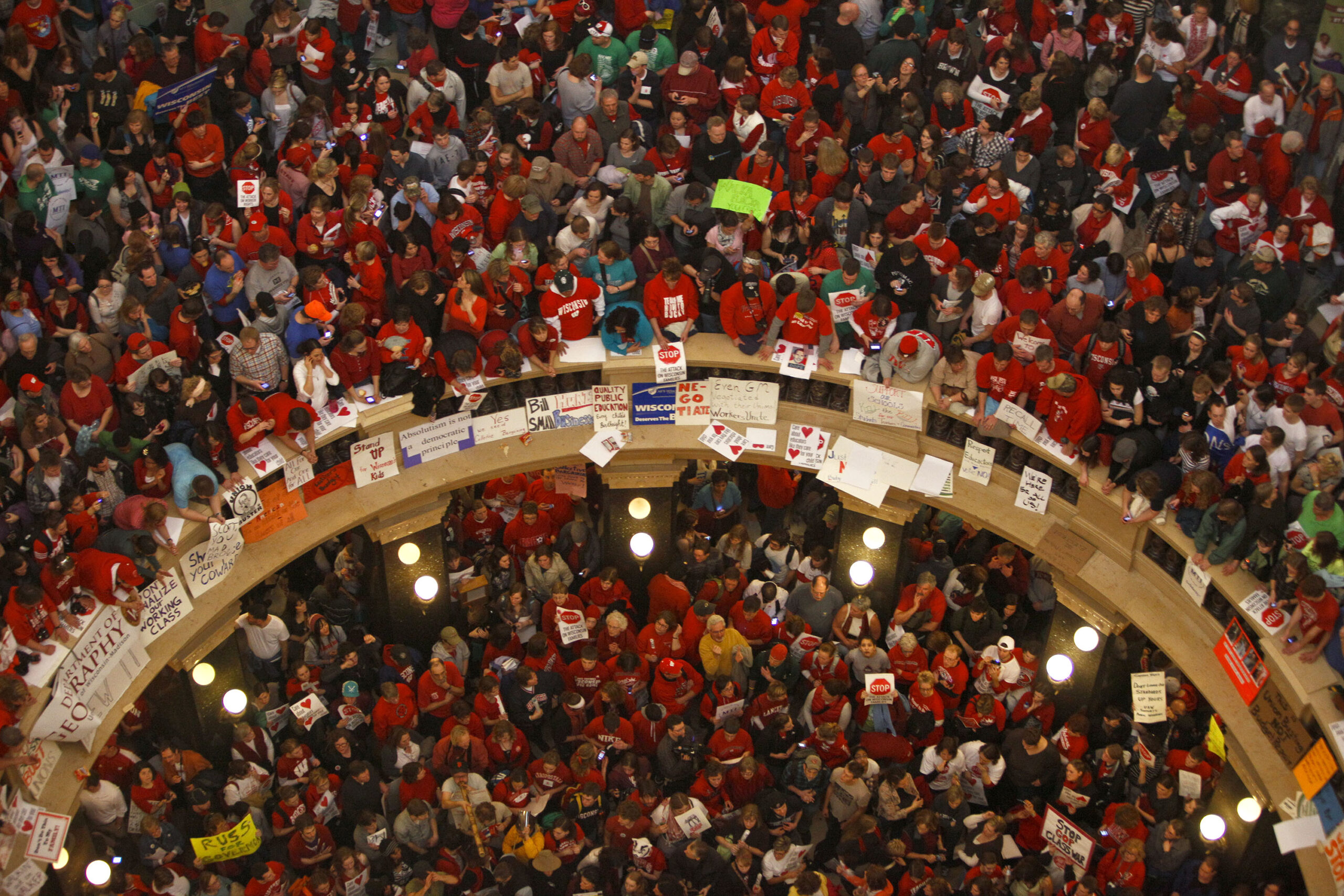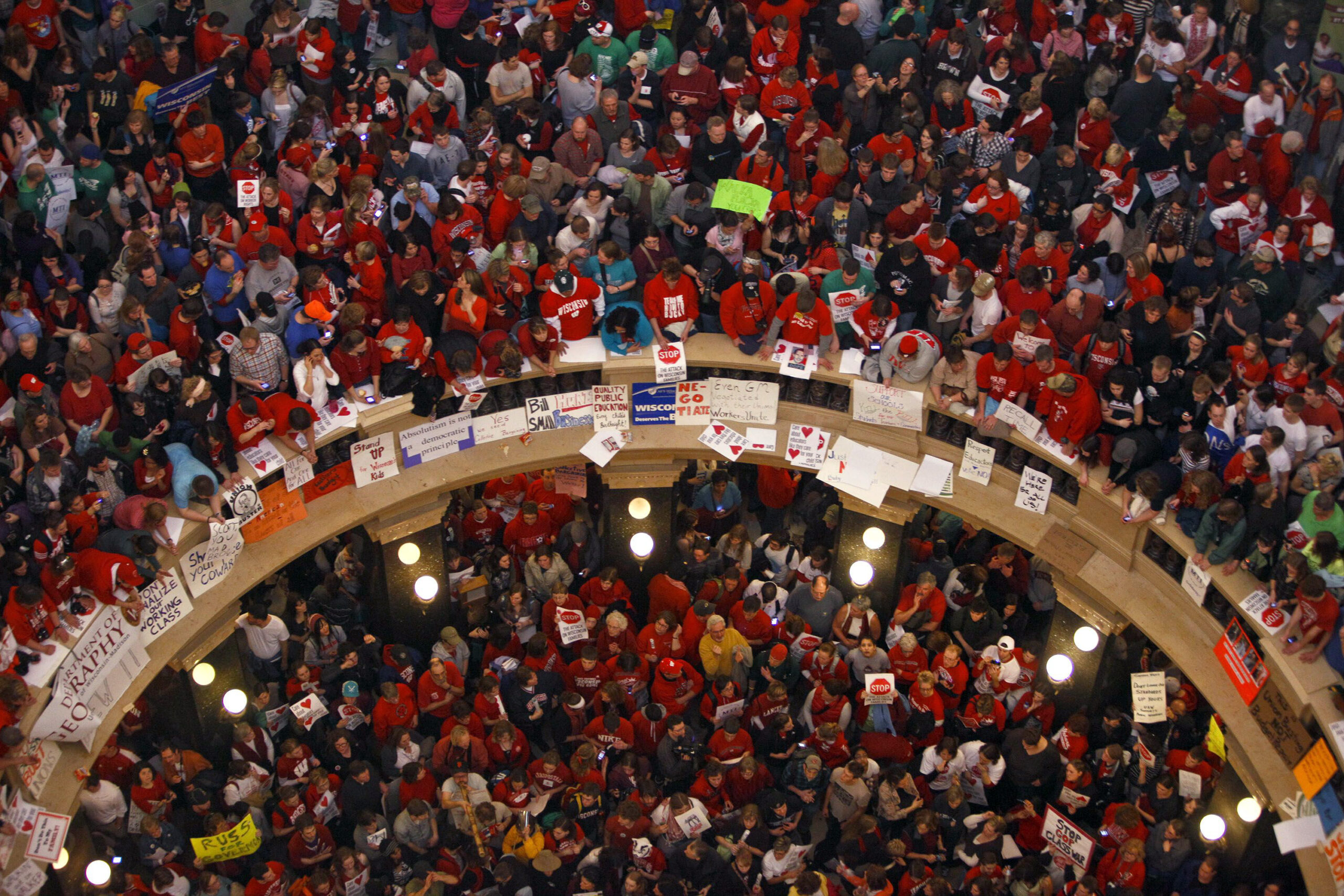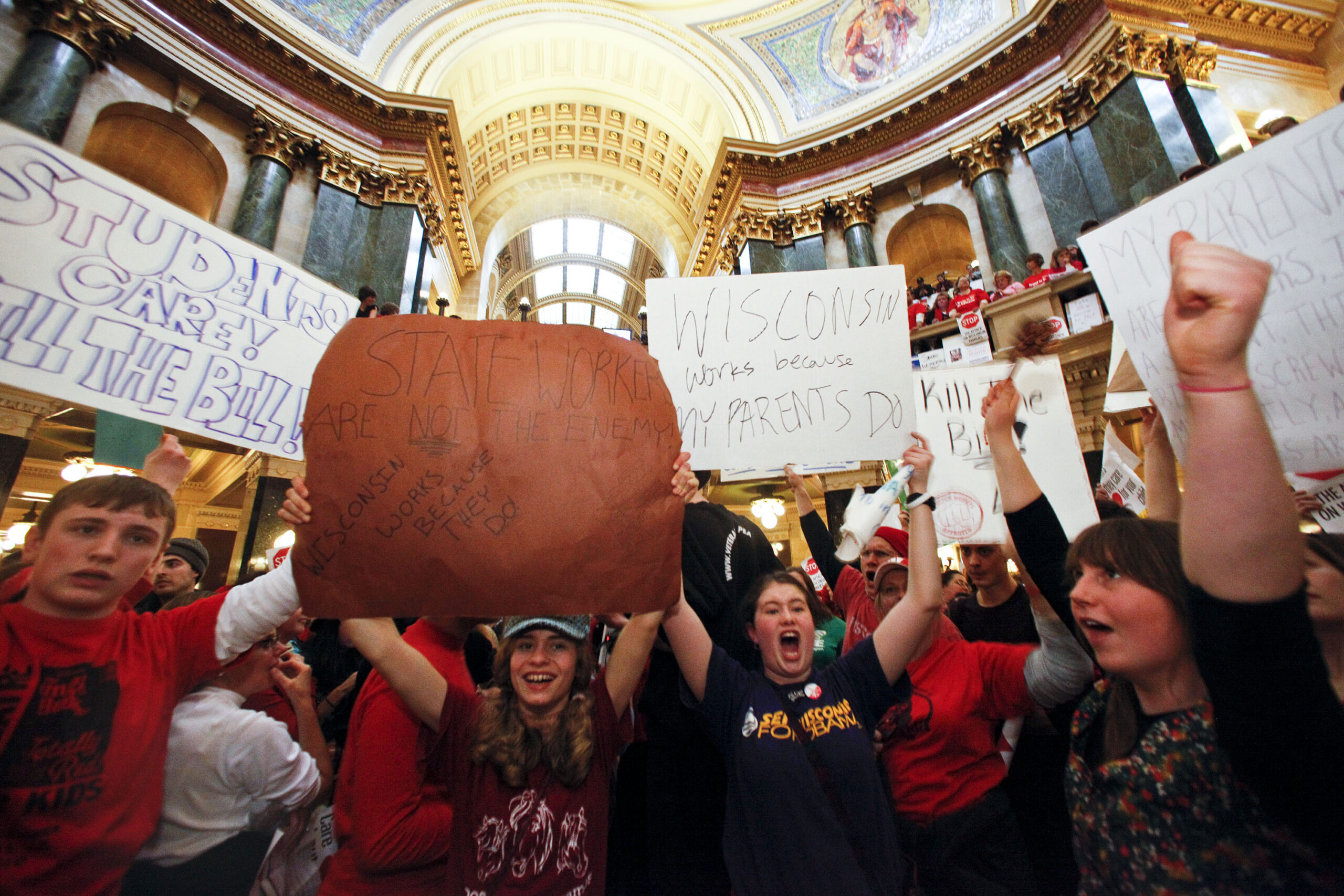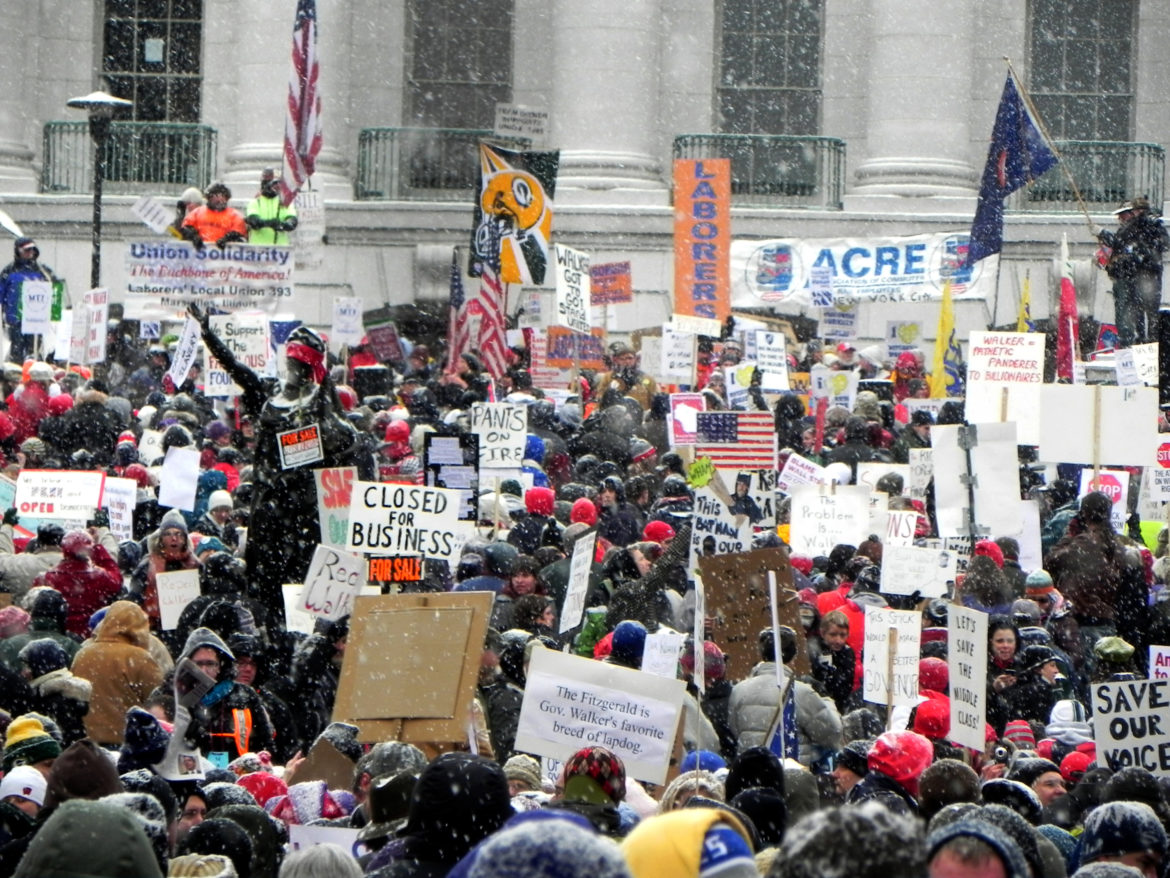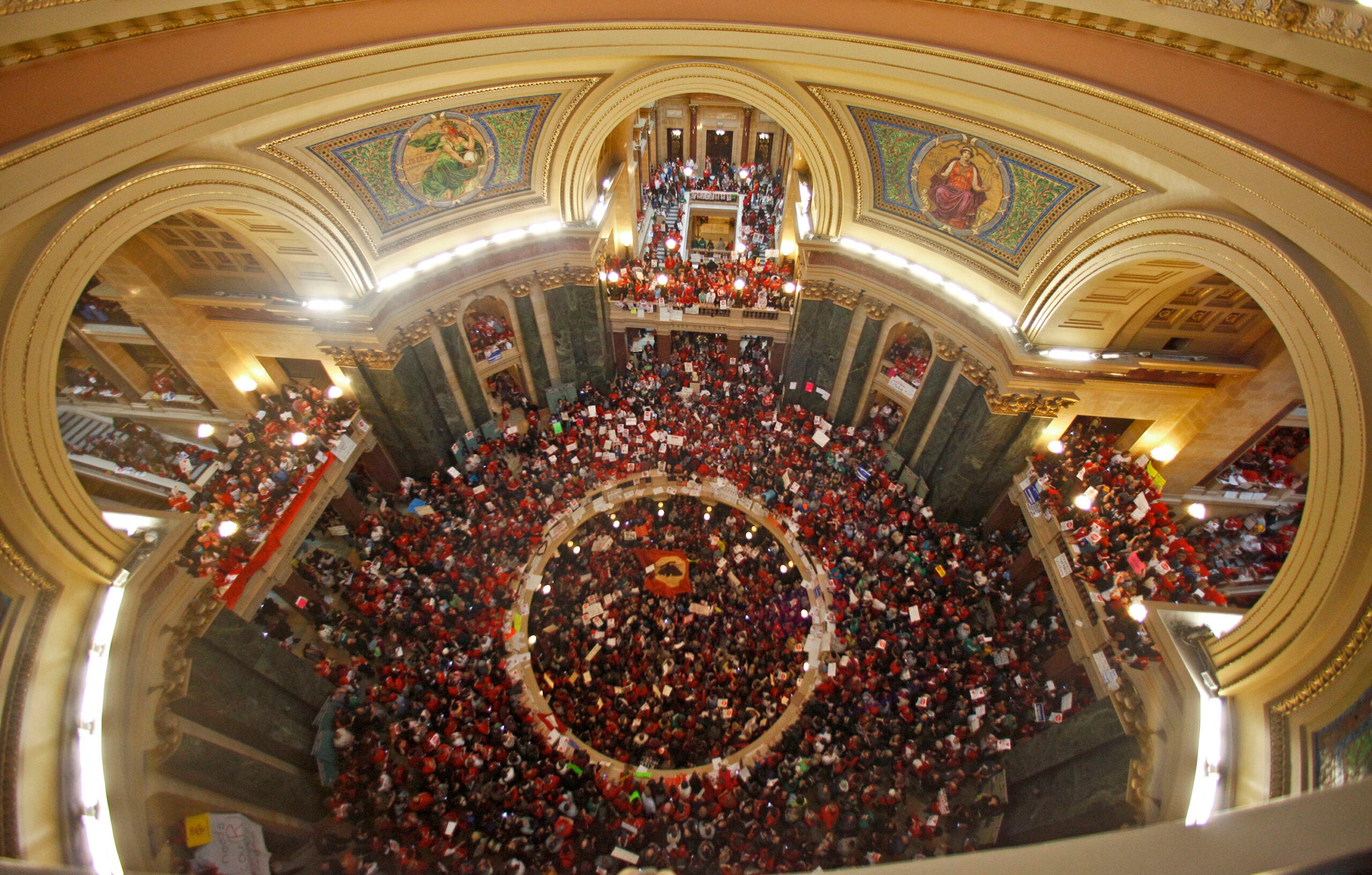A federal court has struck down part of Wisconsin’s right-to-work law that would have made it harder for private sector unions to collect dues, though the rest of the law remains intact.
The provision involved the checkoffs workers sign to let employers automatically deduct union dues from their paychecks. Wisconsin’s right-to-work law would have let workers revoke those agreements with 30 days notice.
Federal District Court Judge William Conley ruled that change ran contrary to federal labor law, which says such agreements can last a full year.
Stay informed on the latest news
Sign up for WPR’s email newsletter.
Attorney Nathan Eisenberg represented the International Association of Machinists District 10 and Local Lodge 873, the union that brought the lawsuit. He called the dues checkoff provision an attempt to “starve” unions of the resources they need to represent members.
“This allows the union to represent their members and keep the resources they need to represent their members,” Eisenberg said.
The Wisconsin Department of Justice, which defended the law, said it was still reviewing the decision.
The rest of Wisconsin’s right-to-work law still stands. It prohibits mandatory union dues at private sector businesses.
Editor’s note: This story has been updated with additional reporting from WPR.
Wisconsin Public Radio, © Copyright 2025, Board of Regents of the University of Wisconsin System and Wisconsin Educational Communications Board.


